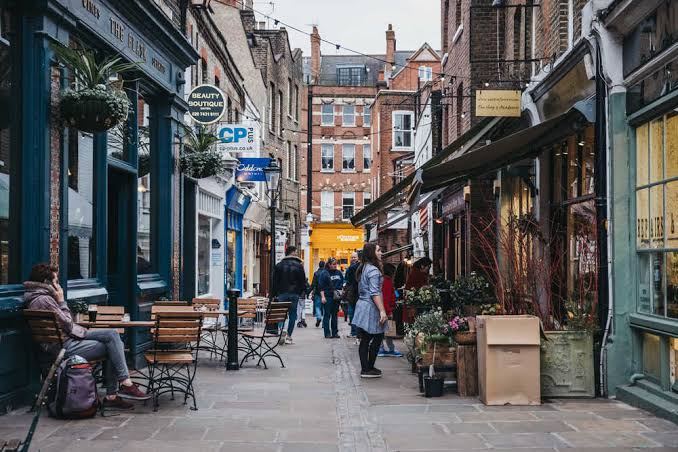JAPA: CHRONICLES OF A YOUNG NIGERIAN MOTHER IN UK

My first pregnancy, in hindsight, was a sweet experience, though it came with an unexpected challenge. Starting in my third month, I found myself waking up at exactly 2 a.m. every night, staring anxiously out the window, gripped by a quiet panic. Have you ever had your life flash before your eyes? That’s what I felt when I thought about my decision to leave Nigeria. I often hear people criticize the wave of Nigerians emigrating, and I can’t help but shake my head. Those who know me understand how deeply I love my country. its food, its vibrant culture, the warmth of its people. Leaving was never part of the plan. Nigeria was my home, a place I was born into and would always cherish.
But everything changed the night I was attacked. A group of men (about ten of them) broke into my home, robbing me of more than just my possessions, they took my peace. From that day until the moment I left, I couldn’t sleep without fear. The trauma stayed with me, suffocating me. It became impossible to stay. And though I still love my country, I’ve learned that love alone isn’t enough when your sense of security is stripped away.
Waking up at 2 a.m. became my new normal, something I endured until I gave birth and for four months afterward. But then, on the day I arrived in London, everything changed. That night, for the first time in months, I slept soundly. It was then I realized, insecurity had driven me from the country I adored, but at least now, I could rest. One problem had been solved.
However, as I found peace in uninterrupted sleep, I was blindsided by the challenges that lay ahead. Becoming a first-time mother in a foreign land was a test I hadn’t fully prepared for. Was it the biting cold, the overwhelming cultural shock, or simply the fact that life wasn’t as easy as YouTubers had made it seem?
I had always prided myself on my understanding of the English accent. After all, I was a fan of British classics like Pride and Prejudice and Anne with an E. But to my surprise, living in London was a different experience. Conversations with locals often left me feeling like I needed an interpreter. The accent was sharper, the rhythm unfamiliar. It wasn’t quite what I had imagined.

Having money readily available doesn’t guarantee housing options like it does back in Nigeria. The rental process here was both shocking and draining. I had barely been in the country for a week when I encountered the list of requirements from letting agencies and landlords. Most demanded at least three months’ payslips in pounds and two guarantors. Was this a joke? I had come to study, and I didn’t know anyone in this land, had no relatives, and certainly had no employment history here.
It felt like I had already lost before the house search had even begun. I had budgeted for, at most, two weeks at an Airbnb, but with all these hurdles, I was completely overwhelmed. What should have been a simple transition was quickly turning into a stressful and exhausting experience. Reverse japa was an option i was considering barely a week in this land.
Click HERE to Read Part 2






Anonymous
2 months agoInteresting!! But this can’t be the conclusion. Lets know how it ended
Esticado
2 months agoLoool the YouTubers glamorize everything. I think it’s their own way of escape. Beautiful write up, can’t wait for the concluding part!
Mr Mohammed
2 months agoYour story powerfully captures the pain of leaving home for safety, only to face new challenges abroad. It’s a raw reminder that starting over isn’t easy, but your resilience shines through. Looking forward to reading more!
Olubunmi
2 months agoThis is so true and very interesting to read. It’s good to see honest accounts of ‘japa’ and not the glamourised version that is usually publicised.
Gabriel Abayomi
2 months agoThis write- up is deeply moving , capturing the reality of leaving one’s country and facing unexpected challenges abroad. It is also a reminder that while emigration might offer safety, the challenges of adapting to a new culture and the sense of dislocation are just as real.
Ibukun
2 months agoInteresting!! Go on…